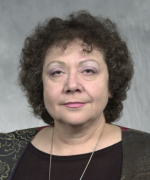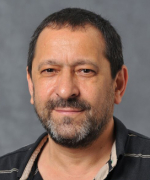Research Tools(60)
-
mAb mouse anti-Amphiregulin clone AR37 (No. M7-2388)
The AR37 monoclonal antibody recognizes human and mouse amphiregulin (AREG), a member of the epidermal growth factor (EGF) family. ... Read more19341 -
Pmel-1 TCR transduced cells (No. M7-2265)
This T-cell line, derived from the BWZ.36/CD8a thymoma of murine origin, was genetically engineered to express CD3 and a codon-optimized Pmel-1 T-cell receptor (TCR) through sequential retroviral transductions. ... Read more19345 -
Cell line mutant in the R2-box region of the R2 gene (No. M7-2251)
A CRISPR-Cas9–engineered cell line carrying a mutation in the R2-box region of the R2 gene (within the ERE-homologous 5′UTR) exhibits markedly reduced R2 transcript and protein levels. ... Read more19271 -
GBA mice: a novel Gaucher disease (GD) model (No. M7-2249)
The GBA (Gba⁻/⁻;Gbatg) mouse model represents a chronic neuronopathic Gaucher disease (type 3) model that bridges the gap between acute (type 2) and systemic (type 1) forms. ... Read more19369 -
Anti importin beta1 monoclonal antibody (No. M7-2223)
A highly specific and sensitive anti-Importin b1 (KPNB1) monoclonal antibody. The mAb recognizes an epitope comprising residues 301-320 of human KPBN1 and is highly specific for cytoplasmic KPNB1 in diverse applications. ... Read more17648 -
An Improved Single-Cell RNA-Sequencing Method (No. T4-2217)
Single-cell RNA sequencing (scRNA-seq) methods enable the detection of only 10%-15% of the cellular transcriptome, rendering low-expressing genes in the dark. ... Read more18646 -
Hyperstable Serum Albumin Variants for Microbial Mass Production (No. T4-2216)
Serum albumins are widely used in medicine, biotechnology, and cultivated meat production. However, they are mostly extracted from animal sources, raising ethical, reproducibility, and scalability concerns. ... Read more18682 -
Novel Molecules to Activate Immune Pathways (No. T4-2212)
Bacterial and plant immune systems rely on Toll/Interleukin-1 receptor (TIR) domains to detect pathogens and initiate defense responses through immune signals comprising isomers of cyclic ADP-ribose. ... Read more19371 -
GFP variants (No. M7-2209)
A collection of GFP variants with improved/unique properties, such as increased thermostability, photostability, quantum yield, altered fluorescence lifetime, pH sensitivity, and excitation spectra. ... Read more18032 -
OM-17 cell line (high grade serous ovarian carcinoma) (No. M7-2202)
A cell line originated from a patient diagnosed with high-grade serous ovarian carcinoma (HGSOC). ... Read more18314










